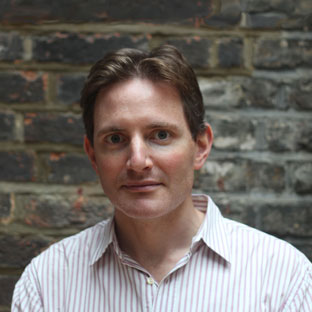Exactly 100 years ago today the RSA voted to move from having members to having Fellows. On the surface this might seem like a simple name change, but it symbolized something deeper – that the RSA is a like-minded group of people, a Fellowship, committed to long lasting social change.
At the heart of much of the RSA’s contemporary mission is the question of how more of ‘us’ – the public – can get effectively engaged in solving some of the shared challenges we face. In some ways this has always been implicit in the RSA’s development, but there have been times on this journey when this question has become more explicit. Now is such a time as we face the decline of mass participation in some collective institutions – such as unions, the church and political parties – and new forms of engagement and communication.
One hundred years ago, political participation was the route through which a person could change the world and being a member of a political party was a statement about how you wanted society to be. The RSA did not have a political ideology (though individual Fellows might), but it was about debating new ideas and improving the world, wherever on the political spectrum the ideas initiated. This might seem small compared to the great movements that people could join at that time, but it was hugely significant, contributing to everything from women’s education to inventing a method of cleaning chimneys so that children didn’t have to go up them.
Fast-forward 100 years and there is as much need as ever for people to coalesce around pressing problems. If we can be described as consumers of charitable causes, then consumer choice has exploded over the past 30 years. There are now more than 160,000 charities in the UK. The challenge for many of them is not simply to secure our money, but to be able to get some of our time and use it in a positive way. Charities can flourish because the public forms causes - it becomes impassioned by them and is motivated because it cares about what it is supporting. We do not simply consume causes, but create and participate in them, whether giving support, voicing our concerns or participating and leading action.
Organisations such as the RSA are constantly striking a balance between undertaking action that improves the public good and persuading governments that they ought to be undertaking them instead. While the RSA led the way in vocational exams in 1856 (giving millions of people the opportunity to gain qualifications and a route into employment that they would never previously have had) it became clear that this was something of national importance that needed government backing to ensure it was available fairly across the country.
We live in a time when the role of the state – and what it should and should not provide – is the subject of much debate. However, due to political sensitivities, no current party is willing to set out a coherent, comprehensive rationale for what they think the state’s role is.
The consequence of this is that the debate is played out in endless skirmishes over single issues. The spare room subsidy, disability allowance and help for childcare costs have all had their time under the spotlight. While there may be political differences about how or what the state should provide, the general direction is one of retreat as parties agree that we cannot afford the current level of government outlay. This is where the RSA Fellowship comes in. While the past century has seen the Fellowship debate and develop good ideas in the context of a broadly expanding government, we are now in a new age of Fellowship as government contracts.
But it is not simply about the size of the state. New forms of collective action and service delivery are part of the future, technology is rapidly changing the way we live and old institutions are struggling with the pace of change. The RSA has a vital role to play in all these areas. Indeed, the Fellowship – a group of like-minded people coming together to ensure we overcome challenges and thrive – seems more important than ever.
One of the great qualities of the RSA is its proven ability to adapt to the times, even when this is a difficult or contested process. So as we celebrate the centenary of the Fellowship today, reflecting on its many achievements over the past 100 years (you may have seen recent posts on the RSA’s Twitter feed highlighting some of these achievements), we must also ensure that we are not complacent. The Fellowship’s greatest challenges are likely to be in front of it, what will the next 100 years hold?
Oliver Reichardt is the Director of Fellowship at the RSA
Follow him @OliverReichardt
(This blog is pulled together from ideas originally in my article from the Spring 2014 RSA Journal. Read the Journal here.)
Related articles
-
Three reflections on RSA Meetups: Human connectivity and a catalyst for change
Dr Dee Gray, Alan Henry and Pam Luckock FRSAs
This blog is written as three reflections, inspired by recent on RSA regional ‘meet ups’ in north Wales. It is written by RSA Fellows Dr Dee Gray, Alan Henry and Pam Luckock.
-
"Thank you for teaching me how to look"
Sally Sheniman FRSA
Over three months from end of January to beginning of April in 2019, Artists in Residence at C2C Social Action worked with vulnerable women in Northampton, teaching art skills and bolstering confidence.
-
The Democratisation of Planning
Michael Ocock
Michael Ocock advocates for systems thinking and a change to the way we think about public engagement.


Be the first to write a comment
Comments
Please login to post a comment or reply
Don't have an account? Click here to register.